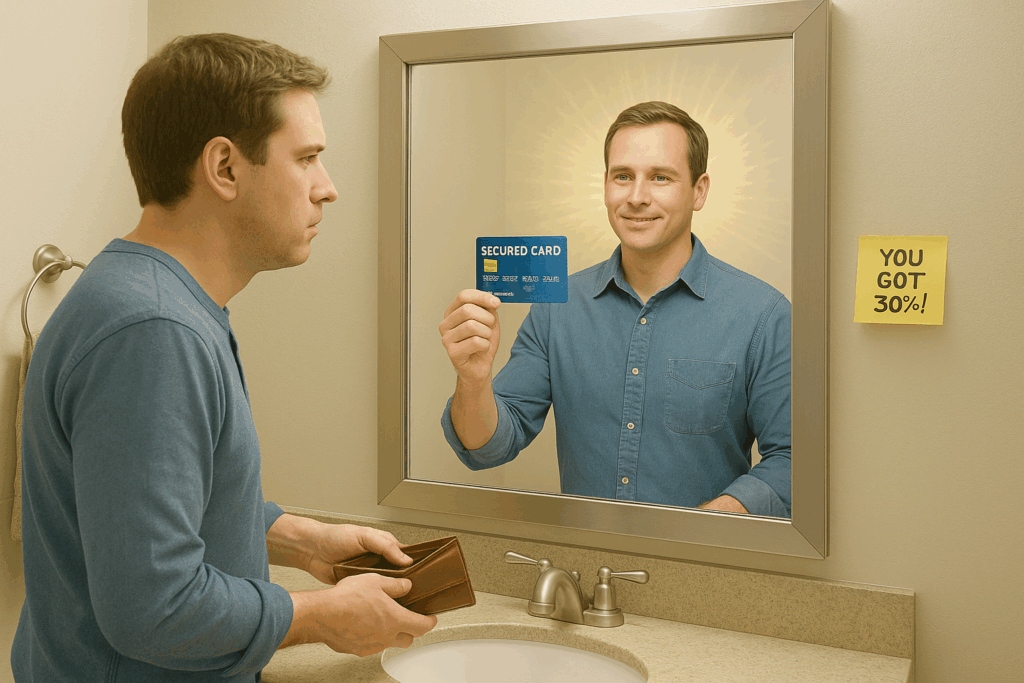Can Secured Cards Raise My Score?

If you’re trying to build or rebuild your credit, you’ve probably heard that a secured credit card can help. But do they really work? Can a secured card actually raise your credit score?
The short answer: Yes—but only if you use it wisely.
Let’s break down how secured cards work, how they affect your score, and how to get the most out of one.
What Is a Secured Credit Card?
A secured credit card is a type of credit card that requires a refundable security deposit usually between $200 and $500 as collateral. This deposit becomes your credit limit.
It’s designed for people with:
- No credit history
- Poor credit
- Past issues like collections or bankruptcy
Because the card issuer is protected by your deposit, these cards are easier to qualify for than traditional unsecured credit cards.
How Secured Cards Can Improve Your Credit
When used responsibly, secured credit cards can positively impact the five key factors of your credit score:
1. Payment History (35%)
Make on-time payments every month. This is the single most important factor in your credit score.
Even one missed payment can hurt your score, so set up auto-pay or reminders.
2. Credit Utilization (30%)
This refers to how much of your credit limit you’re using. Try to keep your balance below 30% of your limit (or even better below 10%).
Example: If your secured card has a $300 limit, don’t carry more than a $90 balance.
3. Length of Credit History (15%)
The longer your accounts are open and in good standing, the better. Keeping a secured card open over time builds positive credit history.
4. Credit Mix (10%)
Having a credit card, even a secured one, adds variety to your credit profile if you also have loans (like student or auto loans).
5. New Credit Inquiries (10%)
Applying for a secured card does result in a hard inquiry, but this has a small and temporary effect usually just a few points.
Secured Card vs. Prepaid Card
Don’t confuse secured cards with prepaid debit cards. Prepaid cards don’t report to the credit bureaus and won’t improve your score.
Secured cards DO report to at least one, and often all three credit bureaus: Experian, Equifax, and TransUnion.
When Will I See a Score Increase?
Most people see improvement in as little as 30–90 days, depending on how they use the card and what’s already on their credit report.
Tip: Monitor your score monthly and watch for positive changes after your first few on-time payments.
What Happens to My Deposit?
If you use the card responsibly:
- Some lenders upgrade you to an unsecured card after 6–12 months.
- When that happens, your deposit is refunded.
- If you close the account in good standing, you also get your deposit back.
Best Practices to Maximize Your Score Boost
- Only charge what you can pay in full each month
- Keep your balance low (under 30% of your limit)
- Never miss a payment
- Avoid applying for too many other accounts at once
- Choose a card that reports to all 3 bureaus
Final Thoughts
A secured credit card is one of the fastest and safest ways to build or rebuild your credit score. It doesn’t require perfect credit, and with just a little discipline, it can open doors to better financial opportunities—like car loans, mortgages, and unsecured cards.
At CreditNerds.com, we’ve seen hundreds of clients use secured cards as a stepping stone toward strong, healthy credit.
Want help fixing bigger issues?
👉 Schedule your free consultation today with one of our credit repair experts!
We only charge if we get results. Let’s build your credit, one smart step at a time.

